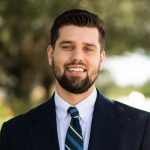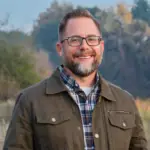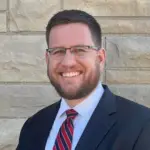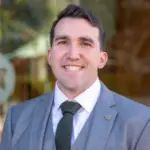Brian Hamrick is pastor of Fairfields Baptist Church in Burgess, Virginia, where he has served since 2002. He and his wife Katherine have a 15-month old son, Nathan. He is a guest blogger for me today, reporting on a conference held yesterday in Alexandria, VA.
Good News Baptist Church of Alexandria hosted the Evangelical Forum on Wednesday, November 9th. The Evangelical Forum is a network of pastors and laymen affiliated with the Baptist General Association of Virginia (BGAV) who affirm the 2000 Baptist Faith and Message.
Dr. Tom Nettles spoke regarding soul competency (as it relates to church purity and divine sovereignty), and Dr. Mark Dever gave two historical profiles on John Bunyan and John L. Dagg.
It was fitting for Dr. Nettles to make this presentation at this time- almost 99 years ago to the date, E.Y. Mullins presented the doctrine of soul competency before the Virginia Baptist Historical Society. Dr. Nettles defined soul competency as simply, “the ability to make moral judgments,” as we are created in God’s image. In doing so, he stands with Mullins’ view of the doctrine, strongly opposing the modern caricature used to justify absolute individual autonomy. As Nettles explained,
“It is not true that this was an effort on his [Mullins] part to move away from historic Baptist doctrine.”
Dr. Nettles taught from Ephesians 4:17-24, Colossians 3:5-11, and 2 Thessalonians 2:5-15 to demonstrate that Scripture treats all sinners as deceived, yet fully responsible; justly judged by God. We are responsible for our condition. God does not treat us as people without capacity to be accountable, but as people who are competent to answer before Him ourselves. Nettles argues, if we’re not competent, how could we be blamed or condemned for sin?
In the end, soul competency has much more to say about the justness of God’s judgment than it does about the rightness of man’s choices. In fact, Nettles tightly linked total depravity to soul competency, which “does not destroy moral competence,” but rather points to the necessity of the Holy Spirit’s regenerating work in us so that we would love the truth. It is this lack of emphasis on (or complete distortion of) total depravity that has contributed greatly to the misunderstanding and application of soul competency in our time by so many.
Nettles used Luke 4:14-30 to show the workings of total depravity in response to God’s truth. His explanation of regeneration was particularly sharp: “the Holy Spirit has no helper.”
Finally, Nettles gave 3 areas of application regarding soul competency:
1) Soul competency frees the church from the impurity of an improper nationalism.
2) Soul competency frees the church from the superficiality of ritualism. He cited the soul-of-the-month club as an example of violating the way God works with sinners.
3) Soul competency frees the church from the deceit of authoritarianism.
Dr. Dever’s sketches on Bunyan and Dagg were insightful and stimulating. Of note was Bunyan’s views on baptism, which desired to extend membership for the “visible saints by calling” in order to foster more unity in the local church. This, of course, would include paedobaptists in church membership. Dever graciously expressed the many contributions Bunyan has made for the faith, saying his works are the most appreciated writings in the history of the Chrisitan church outside of Scripture. Yet Dever passionately challenged Bunyan’s baptism position:
“Doesn’t this create the idea that baptism is in the eye of the beholder?… obedience to God is not in the eye of the beholder, unless the beholder is God Himself.”
Dever listed D. Martyn-Lloyd Jones as advocating an open baptism view in 1978 similar to Bunyan. Dr. Dever ended his treatment of Bunyan’s position on baptism saying, “My conclusion of Bunyan’s position on baptism is that he was editing Jesus.”
His treatment of John L. Dagg was also helpful. Dever recounted Dagg’s influence in several states in forming or leading in state conventions- he was instrumental in forming the BGAV. His pastorate in Philadelphia ended in 1834 when he lost his voice. This event opened the door to his writings, which included extensive arguments against infant baptism and Landmarkism. Dever concluded of Dagg, he is “almost unsurpassed as a doctor of the purpose of theology.”
A brief time of Q & A was afforded at the conclusion of the meeting. Both men shared how encouraged they are of how God is working in the SBC, and they were hopeful a Patterson/Mohler discussion would do much to expand theological understanding. Nettles expressed more confidence now than ever that we could return to our rich theological heritage.
Thanks be to God for the leadership of the Evangelical Forum who organized this event. Much encouragement and blessing was received by us all.




























